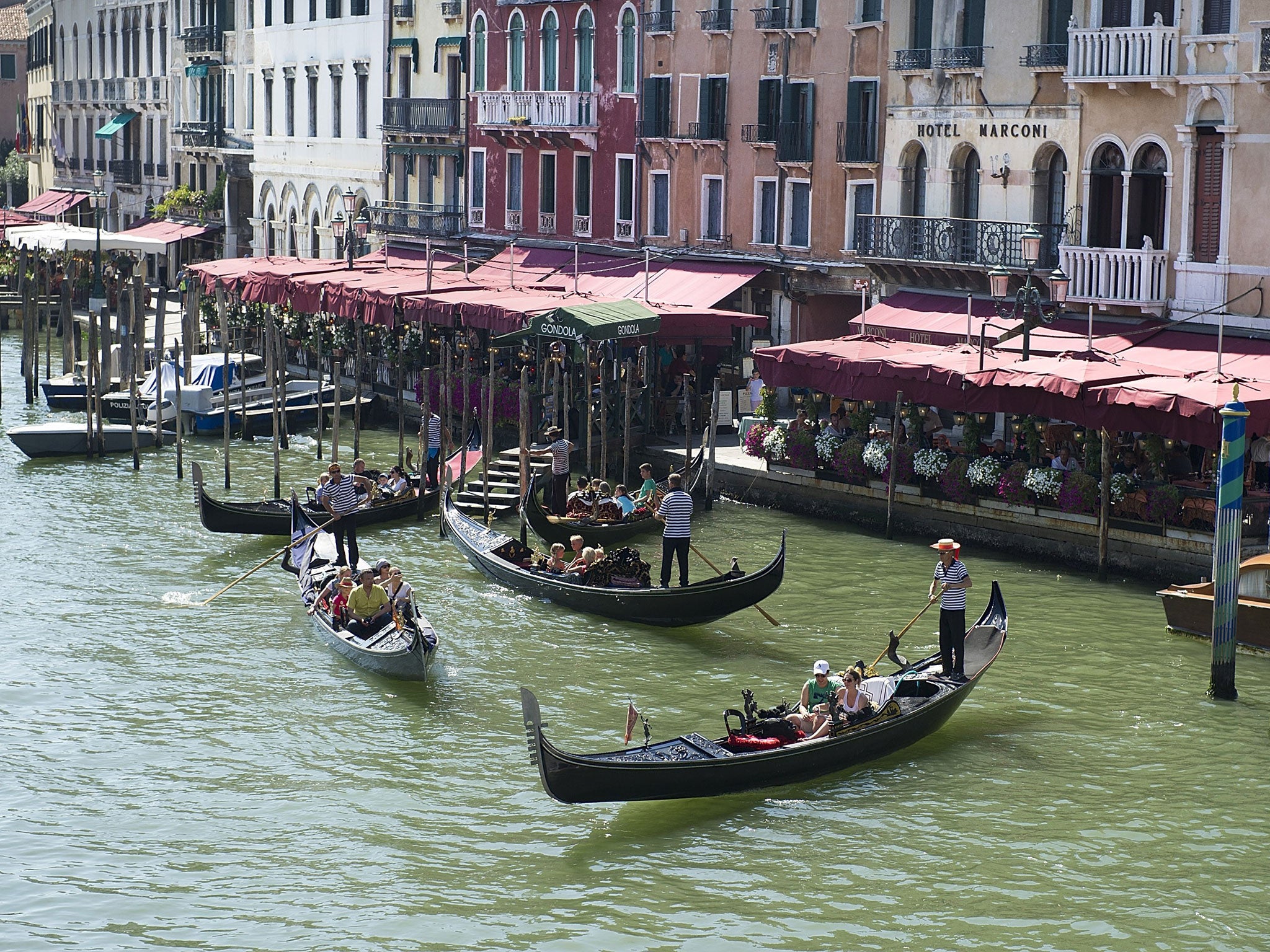GPS to be fitted in Venice’s gondolas after tourist killed in crash with water taxi

Your support helps us to tell the story
From reproductive rights to climate change to Big Tech, The Independent is on the ground when the story is developing. Whether it's investigating the financials of Elon Musk's pro-Trump PAC or producing our latest documentary, 'The A Word', which shines a light on the American women fighting for reproductive rights, we know how important it is to parse out the facts from the messaging.
At such a critical moment in US history, we need reporters on the ground. Your donation allows us to keep sending journalists to speak to both sides of the story.
The Independent is trusted by Americans across the entire political spectrum. And unlike many other quality news outlets, we choose not to lock Americans out of our reporting and analysis with paywalls. We believe quality journalism should be available to everyone, paid for by those who can afford it.
Your support makes all the difference.Venice authorities will fit GPS devices and number plates on all the lagoon city’s gondolas to monitor their movements and prevent a repeat of the accident that cost the life of a German tourist in August.
The measures are part of a 26-point plan drawn up by a senior transport official to improve safety in the city’s increasingly crowded waterways. The area around the Rialto Bridge, where Joachim Vogel, 50, was killed when the gondola in which he was travelling hit a water taxi, is a particular cause for concern, according to the transport councillor, Ugo Bergamo, who presented his action plan at the weekend.
In addition to monitoring all vessels with GPS devices, Mr Bergamo intends to stop gondolas lining up in rows to serenade tourists and to remove jetties that protrude too far into canals. He also wants to slash levels of traffic, including motor boats, in clogged areas, such as the Rialto Bridge.
“We have no alternative,” he said. “We can’t pretend that we don’t have a problem. We intend to reduce the water traffic in crucial parts of the Grand Canal by 50 per cent.”
When the measures kick in on 4 November, 5,000 vessels will require GPS devices. The city’s gondolas will subsequently have to have them as well. Water taxis also face new restrictions. Forty surveillance cameras placed over the Grand Canal between the railway station and St Mark’s Square will be on the lookout for offenders.
But there may be other changes on the way, too. Blood and urine tests performed on the gondolier, Stefano Pizzaggia, involved in the August accident reportedly suggested he was under the influence of cocaine and cannabis at the time.
Emergency services carried out a simulated rescue operation on Monday, to test the response to a collision between vessels further from the shore.
Join our commenting forum
Join thought-provoking conversations, follow other Independent readers and see their replies
Comments